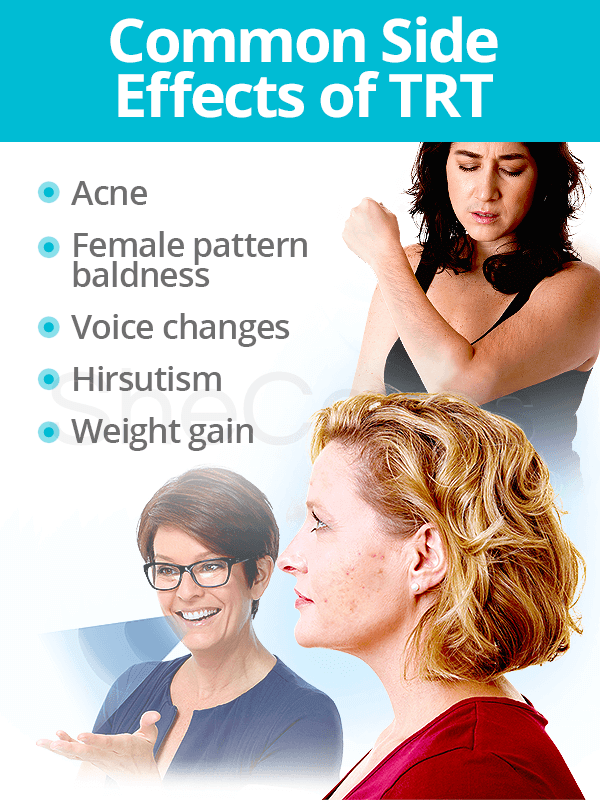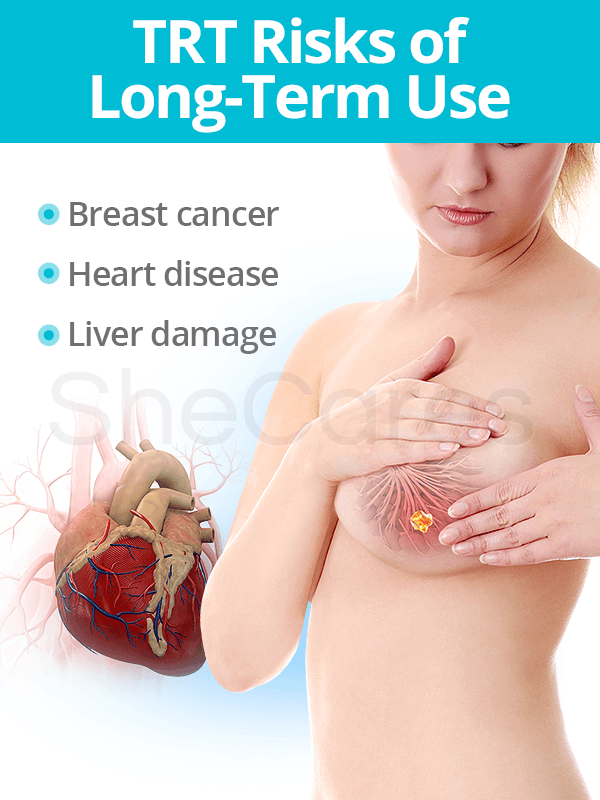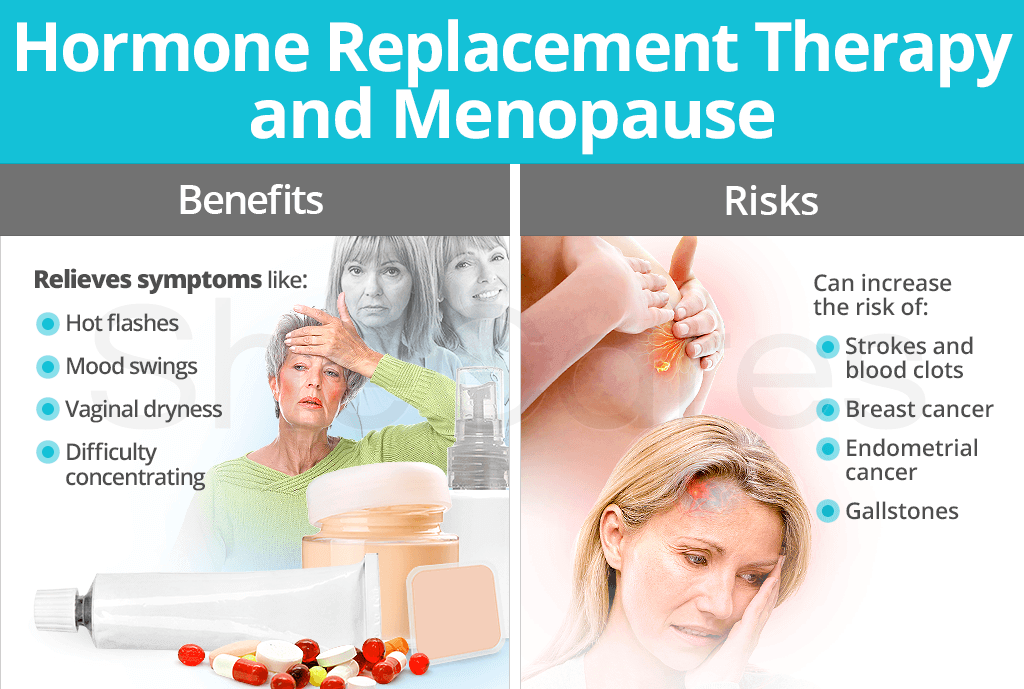Oftentimes, doctors are hesitant to prescribe testosterone to women as the risk of suffering from its adverse reactions can outweigh its benefits.
Read more about testosterone replacement therapy (TRT) side effects below, counting the most common adverse reactions to the treatment as well as long-term TRT side effects.
Common Side Effects

Regularly experienced negative side effects of testosterone replacement therapy are:
- Acne
- Female pattern baldness
- Voice changes
- Hirsutism
- Weight gain
- Aggression
- Lack of well-being
- Irregular periods
- Fluid retention
- Anxiety
- Edema
- Clitoris enlargement
It is worth mentioning that every experience with TRT will differ, leading to the possibility of there being other adverse effects of testosterone replacement therapy not aforementioned.
Risks of Long-Term TRT Use
Extended use of synthetic androgens in testosterone replacement therapy may lead to the development of the following health conditions:

- Breast cancer. Testosterone can aromatize to estradiol and have a secondary, stimulatory effect on estrogen receptor (ER)-positive breast cancer. Combine with an aromatase inhibitor for safety.
- Heart disease. Long-term use of testosterone is suggested to lower HDL (“good”) cholesterol levels while raising LDL (“bad”) cholesterol levels.
- Liver damage. High dosages of androgens - like testosterone - can cause hepatoxicity, as can other forms of oral, synthetic hormones. To prevent this, use non-oral forms of testosterone.
Once more, this list is not absolute as there are other long-term risks and side effects of TRT that might evolve, depending upon a woman's specific medical history.
Such side effects do not usually pose a problem if the appropriate dose of testosterone is taken and there is regular monitoring of blood levels. If a woman notices any negative side effects, it's recommended to reduce testosterone dosage accordingly.
Now that the long-term effects of testosterone replacement therapy have been explained, continue reading about hormone replacement therapy and menopause, a crucial turning point in women's reproductive lives during which they may decide they want to take outside hormones.
Sources
- Glaser, R. & Dimitrakakis, C. (2013). Testosterone therapy in women: Myths and misconceptions. Maturitas, 74(3), 230-234. doi: 10.1016/j.maturitas.2013.01.003
- Harvard Health Publishing. (2010). Testosterone and the heart | Testosterone therapy: Is it for women? Retrieved March 4, 2019, from https://www.health.harvard.edu/heart-health/testosterone-and-the-heart | https://www.health.harvard.edu/womens-health/testosterone-therapy-is-it-for-women
- Rohr, U.D. (2002). The impact of testosterone imbalance on depression and women's health. Maturitas, 41(Suppl 1), S25-S46. Retrieved March 4, 2019, from https://www.ncbi.nlm.nih.gov/pubmed/11955793
- UT Southwestern Medical Center. (2018). Attention women: Low sex drive? Testosterone won't help. Retrieved March 4, 2019, from https://utswmed.org/medblog/libido-testosterone-women/
